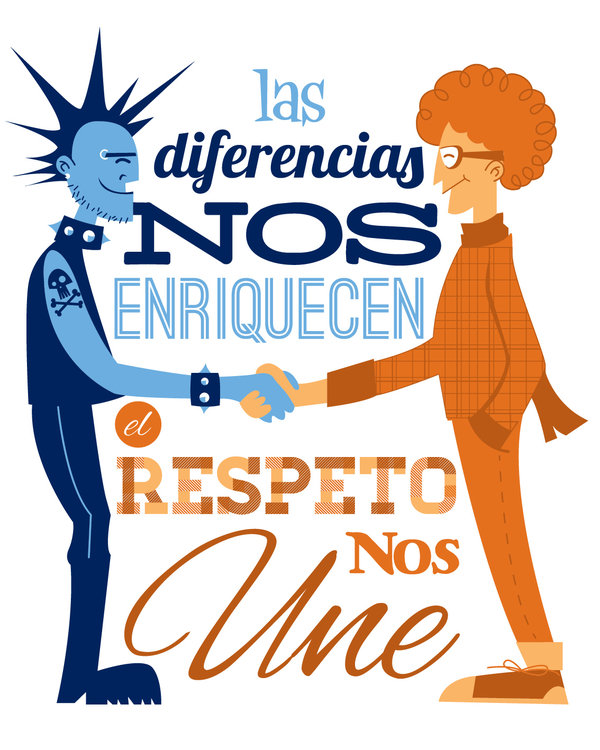The word I respect refers to one of the most widespread moral values among societies and is the one that refers to recognizing, venerating or appreciating an object, person or living being. For instance: respect for the laws, respect for animals, respect for the elderly.
Respect implies tolerating the other, that is, a person can “respect” another without having to adhere to what they think or the way they act. That is, I may not think like the other but that is not why I should offend or discriminate against him.
This value results key for societies to stay together over time, since it must be taken into account that not only do different social groups coexist in it, but also that they develop in a geographical space that must be respected, along with the animals, plants and natural resources that may there meet.
Examples of respect
Within any society, different kinds of respect can be identified. Some examples are the following:
- Respect for the laws. All of us live immersed in societies that contain a series of laws that must be followed by everyone, regardless of personal convictions. If not, community life would be impossible to cope with. In case of violating the laws, some punishment or sanction is usually imposed.
- Respect for the other. In this case, one person respects or tolerates the other regardless of their differences. For example, a Japanese person may respect a person of color and consider that both should have the same rights, regardless of skin color or physical features in general.
- Respect for animals. It is increasingly common for this type of respect to be promoted, which has to do with the fact that there is no mistreatment of these living beings, such as using them to experiment or for shows or shows, as happens for example in circuses. . They are also promoted not to be killed to use their skin or even to eat them.
- Respect for the elderly. When it comes to respecting the elderly, it not only has to do with tolerating, but recognizing or even admiring those who are older. This positive value has to do with the fact that these are people who have more experience, wisdom and knowledge, so they can contribute their knowledge and advice for the good of the rest.
- Respect for plants. In this case, it is about recognizing the value that these organisms have for life on planet Earth. That is why it is encouraged that the plants are not mistreated or destroyed and that the soil in which they develop is preserved.
- Respect for nature. In this case, we speak of valuing the environment, be it plants, animals or other types of resources, such as soil, air or water. Preserving these elements is key so that the human being and the rest of the living beings can perpetuate themselves on Earth. That is why respect for nature not only has to do with the present, but it also takes into account future generations, who will need the same resources, as well as plants and animals to be able to live.
- Respect for oneself. In this case, an allusion is made to valuing and appreciating one’s own convictions and beliefs, beyond the environment and what other people say. If a person does not value himself, it is difficult for him to be able to value everything that surrounds him.
- Respect for parents. In this case we talk about appreciating, recognizing and even obeying what our parents indicate or instill in us.
- Respect for good customs. In this case we speak of recognizing and following the customs that exist within a society.
- Respect for minorities. This respect implies tolerating and accepting that within the community in which we live there may be certain minority groups with whom we do not share certain values, beliefs or customs. But that is not why we should separate them, discriminate against them, or put them aside. This respect means accepting them, integrating them and ensuring that their rights are also fulfilled.
- Respect for women. In this case, it refers to the fact that a society is treated with equality and that both men and women have the same rights. That is to say, that gender is not a determining factor in any type of field, such as work, school or even on public roads.
- Respect for authority. The authority is that person who has the power to command over others and precisely respecting it means paying attention to what it establishes.
- Respect for national symbols. Recognizing national symbols, such as the flag, anthem or cockade of a country demonstrate patriotism and commitment to the country to which the person belongs.

